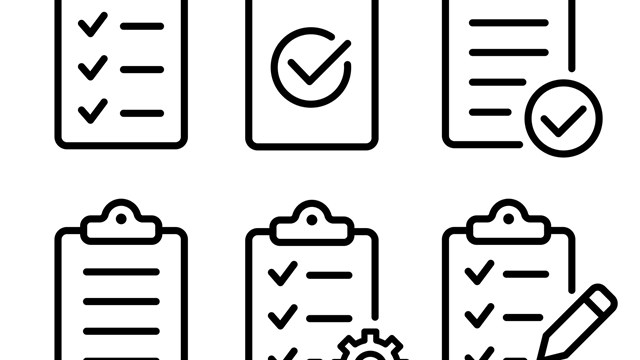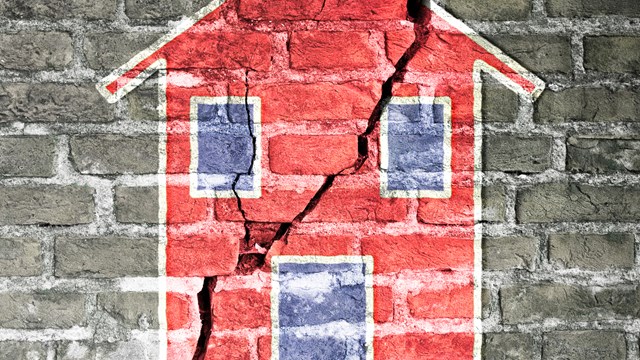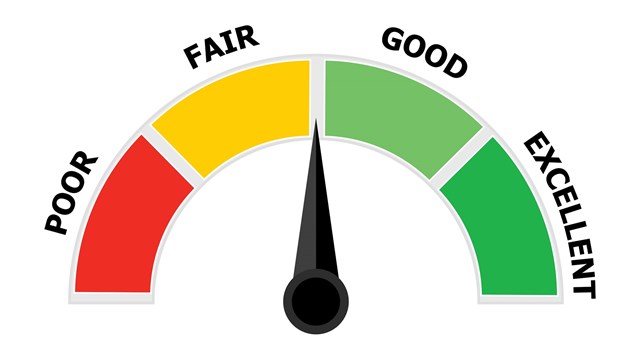
The experience of condo and co-op board members can often feel like a juggling act. There are varied interests in the community that want different things. There's legal counsel, financial advisers, and managers who try to offer the best professional advice they can, and they may not always line up. It's easy to feel like the life of a board member consists of mostly just putting out fires, and never getting ahead to the important things. But some boards may not realize that many of those fires might have been preventable in the first place had members made the smart investments, and took the time to plan.
Just as an individual or couple can have a bank account or into which they can tap into in the event of an emergency, co-ops and condos need a reserve fund for planned, as well as unplanned expenses. Whether it be a lawsuit, a major repair like a new boiler or roof, or something completely devastating like Hurricane Sandy, reserve funds can offer a great deal of relief and security.
Financial planners and accountants all agree on the importance of a reserve fund. But all reserve plans are not created equal. Careful, competent, professional management is the key. If the rainy day fund can't foot the bill for an unforeseen emergency, boards could find themselves in a tough spot.
Reserve Study Needed
All of the financial professionals interviewed for this article said there is no magic formula for what makes the smartest reserve strategy for a building, although there are general guidelines.
To begin with, buildings need to have a reserve study (commonly called a capital needs assessment in New York City), which is typically done. According to Abe Kleiman, CPA and managing partner of Kleiman & Weinshank LLP in Manhattan, the study is usually done in two parts. A physical study identifies all common area components, assesses the conditions of the components and equipment, estimates the remaining life of these components and estimates their replacement cost. The financial analysis examines the status of current reserves, maps out a funding plan and identifies funding goals.
Part of the physical component, says Marvin Antman, CPA and partner at McGladrey LLP in Manhattan, is to look at the last time that major repairs were done. “The big one, for expenses, is the roof,” he says. Likewise, Richard Smolin, CPA of Smolin and Altamura in Brooklyn, says it’s important to know the last time renovations to major components were made, such as the boiler or the elevator, in order to find out when to expect the next major repairs will be needed.
Of course, the age of the building is also a factor. “The needs of a 100-year-old co-op will be different that those of a new condo,” says Gary Adler, CPA and a partner with Bass & Lerner in West Hempstead.
Stephen Beer, CPA and partner at the Manhattan accounting firm Czarnowski & Beer LLP, breaks the reserve fund amount down by unit. For buildings his firm advises, he recommends a minimum of $2,000 per unit. Buildings with a reserve fund that translates to $4,000 to $6,000 per unit are healthy and robust, he says.
One note of caution—some buildings have very old reserve studies. Costs of labor, building materials, and utilities change over the years, not to mention new technology. That’s why it’s important to get your reserve study updated from time to time.
Invest Conservatively
One thing that almost all professionals agree on is that you shouldn’t use your reserve fund as a vehicle for aggressive investment. During the economic boom of the 1990s, and the real estate boom of the early 2000s, some co-op and condo buildings invested their reserve funds aggressively, only to be left out in the cold when the market collapsed. Boards should remember that reserve funds are, in essence, made up of other people’s money and should be treated as such.
In general, conservative investments like CDs, government bonds and so forth seem to be the rule. “The board has a fiduciary responsibility to protect, preserve and enhance the assets, not speculate with funds,” says Kleiman, and “a deviation may be construed as a breach of fiduciary duty.”
Beer favors a “laddered” approach to investing in the reserve fund. For example, one CD may mature in one year, a second in two years, a third in three years and so forth. If there are no unexpected expenses, the board can simply reinvest the money for another few years.
Sometimes, the terms of investments are made to coincide with the expected time a capital expense will be needed. The ladder approach to investments will increasingly be attractive to boards when interest rates eventually rise.
Who Has Access?
On the subject of who oversees and/or has access to the reserve funds, the consensus is that it should be under the control of the board itself. Ideally, there should be two or more individuals who have access to the reserve account, to serve as a form of checks and balances.
“It depends on the board,” says Antman. “The treasurer will be responsible.” Also overseeing the board, he says, should be the president “or another person on the board who has a finance background.” Such a person doesn’t necessarily have to be a financial professional—for example, it could be a school administrator who has experience overseeing budgets.
Adler adds that there should be an annual review of the reserve account by an independent accountant, and that a statement should be sent out to board members about what’s going on as far as the reserves are concerned.
Reserve funds fill the same functions in co-ops and condos and are basically handled the same way. Still, there are some differences in the way they might look at the process.
When rental apartments within the city are converted to condo units, for example, then the condominium corporation falls under the so-called “Reserve Fund Law,” which establishes minimum amounts for the fund under a somewhat complicated formula. Also, because co-ops own the buildings as real property—unlike condos—they have other financial options, such as refinancing a mortgage.
Impact of the Recession
How has the recent recession (which some people say is over, but others say is still happening) impacted building reserves? How concerned should co-op and condo boards be right now about how their reserves are being managed?
Adler points out that “If you’re looking for yields, it’s hard to get yields unless you go long-term (investments). But co-ops are reluctant to go long-term, they’re not sure about what their needs will be.”
Kleiman says, “Obviously, the low rate of return on investment has impacted earnings in reserves. The flip side of that is that low interest rates have enabled co-ops to refinance the underlying mortgages and create reserve funds.”
In some states, especially after the recession first hit, particular boards or associations have decided to pay less into the reserve fund so they could reduce assessments and so help unit owners who are in financial trouble. But this could lead to unsound decision-making and, in the long run, to financial disaster.
Other Reasons
In addition to the reasons we’ve mentioned, there are other reasons for buildings and developments to keep a healthy and adequate reserve fund. Beer mentions the rules from Fannie Mae, Freddie Mac, and the Federal Housing Administration (FHA), put into place after the real estate collapse, specifying that to receive FHA-backed loans, condo associations must have 10 percent of its fund set aside for reserves.
A look at the Internet shows that in 2010 and 2011, there were quite a few cases of bank loans being held up because the condo association didn’t have 10 percent of its funds in a reserve account, since it was dealing with foreclosures and other immediate, pressing problems. Hopefully, many of these problems are now behind us.
Another reason to keep a healthy reserve fund is that, in today’s real estate market, it’s a plus to attract potential buyers of units. “If you look at a building with healthy reserves and one with a minimal reserve fund,” says Smolin, “the healthy one will win out every time.”
Where to Learn?
Where can co-op and condo board members and administrators learn more about how to manage their reserve funds?
There are quite a few resources. For one, board members should consult their managing agent and their CPA. Boards should also seek to get members onto the board that have a finance background. The Council of New York Cooperatives & Condominiums (CNYC) and the Federation of New York Housing Cooperatives & Condominiums (FNYHC) both sponsor seminars and conferences. The Long Island chapter of the Community Associations Institute (CAI-LI) will hold their annual trade show on Saturday, October 17 from 9:00 a.m. to 3:00 p.m. at the Hilton Long Island in Melville, New York. For more info, go to cai-li.org.
In addition, the national CAI organization has on its website several materials about reserve funds, and even about what you need to be qualified as a “reserve specialist.” An organization known as Association Reserves (reservestudy.com) has prepared more than 30,000 reserve studies nationwide.
And, of course, keep reading The Cooperator and go to the Cooperator Expo! The 2016 Co-op & Condo Expo will take place at the Hilton New York hotel on Wednesday, April 13 from 9:00 a.m. to 4:30 p.m. For more information, log on to www.coopexpo.com.
Raanan Geberer is a freelance writer and a frequent contributor to The Cooperator.






Leave a Comment